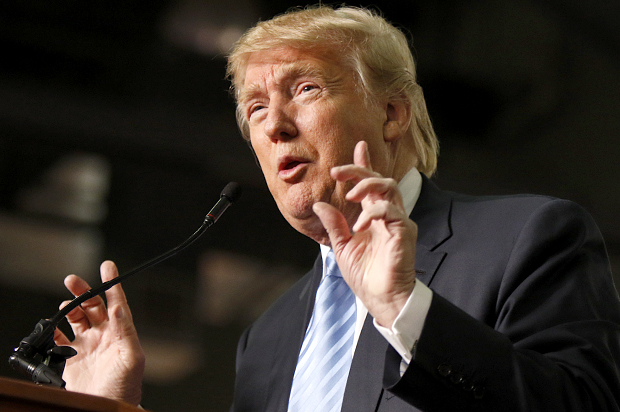Donald Trump has said repeatedly that he doesn’t get enough credit for self-funding his campaign. “I’ve turned down tens of millions of dollars,” he boasted on MSNBC’s “Morning Joe.” “I’d be the greatest fundraiser in the history of politics if I was let loose, but I said that I was going to self-fund my campaign…I don’t think I get any credit…I’m the only one self-funding – everyone else is taking money from the lobbyists and special interests.”
Joe Scarborough even asked Trump if he was going to change, if he was prepared to accept money from big donors in the future. Trump’s response was unequivocal: “No.”
This has been central to Trump’s campaign. His entire narrative is rooted in his independence from establishment financiers. The “career politicians,” as he routinely calls them, are beholden to the special interests funding their campaigns. But Trump’s rich and doesn’t need their money. He’s going to shake things up in Washington as only a liberated outsider could.
The self-funding argument falls apart upon close inspection. Getting things done in Washington requires much more than financial independence, and Trump hasn’t exactly self-funded his campaign. The point, though, is that this was a powerful talking point. True or not, it resonated. Stick a microphone in the face of a typical Trump supporter and one of the first things you’re likely to hear is that “He’s his own man” and can’t be controlled by the donor class.
Which is why Trumpites will be awfully disappointed to learn that the venerated leader has performed an about face.
According to a New York Times report, the Trump campaign is taking “steps to appropriate much of the Republican National Committee’s financial and political infrastructure for his presidential campaign on Monday, amid signs that he and the party would lag dangerously behind the Democrats in raising money for the general election.” The move, as the report points out, “suggests the degree to which he [Trump] will need to rely heavily on the party’s existing infrastructure.”
This was a predictable pivot. Trump was never going to pour his life savings into a quixotic presidential campaign. He spent something like $40 million of his own money on the primaries, but that’s an investment in his brand as much as anything else. The general election will cost over a billion dollars, however. That kind of money will have to come from Wall Street and Big Business, as it always does.
All of this money will come with strings, of course. Trump will have to conform his agenda, like everyone else, to suit the needs of his donors. That’s how the game works. Mark Holden, chairman of one of the Koch brothers umbrella groups, summed it up to The New York Times: “If during the general election cycle, a candidate were able to garner support from the public with a positive message in support of the issues we care about…we would consider potentially getting involved.” Translation: fall in line or you’re on your own.
As anyone who irrationally dumps their hopes into a savior candidate learns, Trump voters will discover that he’s a false prophet; that he can’t – or won’t – transcend the system. In the end, he’ll take money from anyone willing to give it. For someone like Trump, that’s even more troublesome: He doesn’t know policy and he has no understanding of the legislative terrain. To get anything done at all, he’ll need help, and that means leaning on the same establishment insiders against which he’s railed.
This is but one reason why his campaign is a total farce.

